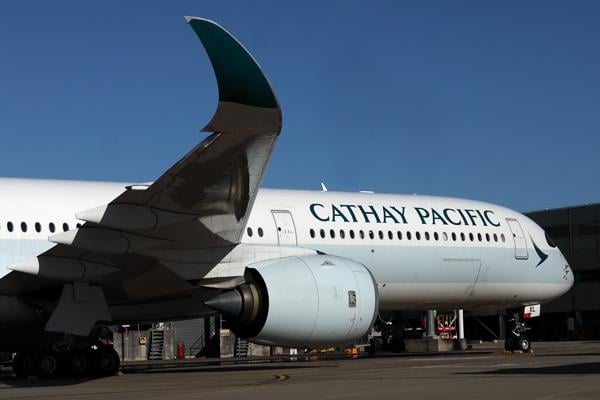
Cathay has canceled 34 flights through Sept. 4 and will cancel another 11 through Sept. 7 while the work is being carried out.
Credit: Rob Finlayson
Cathay Pacific confirms it is on track to complete the unscheduled replacement of engine fuel lines in 15 of its Airbus A350s by Sept. 7. The carrier identified a problem with an engine component on an A350-1000 on Sept. 2, prompting it to inspect all 48 of its A350s. It discovered the issue on a...
Subscription Required
Cathay Pacific Makes Progress On A350 Fuel Line Replacements is published in Aviation Daily, an Aviation Week Intelligence Network (AWIN) Market Briefing and is included with your AWIN membership.
Already a member of AWIN or subscribe to Aviation Daily through your company? Login with your existing email and password
Not a member? Learn how to access the market intelligence and data you need to stay abreast of what's happening in the air transport community.





